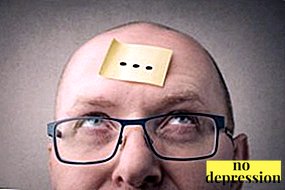In the most general terms, this is the desire to explain the secret causes of certain actions and opinions. Most people did not even think that consciousness is only a small part of the whole psyche. Outside of it, there is a powerful psychic machine that has been formed for thousands of years and whose work is inaccessible to self-awareness, just as the monitoring of the functioning of your liver or other vital organs is not available. But just in this deeply hidden, unconscious area of the psyche lies the initial source of many of our thoughts and sensations.
What is psychoanalysis?
It combines spiritual and physical. Mental inconsistencies develop into a disease of the body. Also here are compiled sympathies or antipathies for specific individuals, the origins of quarrels, which are sometimes so difficult to disassemble. In the unconscious, all our most important decisions mature, impulses are outlined both for heroic and criminal acts, which are not expected at all by anyone who brings them to life or his neighbors. All social, personal relationships, the psychology of the masses - all this is based on unconscious motives.
Tasks of psychoanalysis.
The first and perhaps the most basic purpose of psychoanalysis - this is the interpretation of the controversial that appears in the head of a person and in his relations with others. It is clear that psychoanalysis is performed by all individuals with both normal and deviant psyche, if they encounter only something that touches their nature. The definition of psychoanalysis in a special and purposeful category, which can be a therapeutic communication between a doctor and his patient, appeared already in the 20th century - probably due to the fact that strong and unexpected changes in the public relations of people led many of them to mental discomforts of various kinds.
In the process of urbanization, increasing mobility, rapid cultural development and other processes, well-established psychological links in society have changed. There were no feelings of loss of life meaning, an insurmountable barrier of generations, loneliness and uselessness, the impossibility of realizing one’s self that did not have a similar time in the past. Because of all the above, the number of depressions, mental illness, crimes in the heat of passion, suicides has increased, all conflicts have become more acute. Psychoanalysis as a medical direction and section of psychology appeared then, at the dawn of the twentieth century. He was not only an invention of science belonging to the genius of the mind. In addition, he was a response to sociological changes, which required a special personal adaptation in the situation of the distance between people and dangerous conflict.
All originality psychoanalysis It is in that he appeared on the verge of connecting medicine, science and communication. This can also explain his scientific revolutionism, the super-strong interest of the general public in him, as well as a number of accusations, reproaches, decisions about immorality and deception, which have fallen to the poor psychoanalysts from everywhere. Psychoanalysis has opened the doors to a new era of human self-knowledge.
The history of psychoanalysis.
Thorny road developmental psychoanalysis unusual and peculiar. Encountered by accusations and distrust in academic circles, he, after a certain time, gained popularity, which in scale can only be compared with the fame of Marxism, for example, and of different world religions. Being conceived by its inventor as a method of healing neuroses and a theory of spiritual development, psychoanalysis soon became the philosophy of every person and the whole culture, and was at the very epicenter of public and political life. It can be added that in Nazi Germany the manuscripts of the great Freud were destroyed by fire, and in the USSR they were hidden in special repositories. Already in the 20th century, psychoanalysis became known to the whole world.
Some manuscripts of Freud and his followers were published in the 20-30s in the Russian version based on the professor. YES. Ermakov "psychoanalytic library". For several decades psychoanalysis was officially banned. It was only by the mid-80s that books by Freud, Jung, Adler, and other immortal psychoanalysts began to be published everywhere. Acquaintance with the structure of personality and the science of psychoanalysis will not pass without a trace; any person, having understood its essence, turns into a more sophisticated, more self-critical, less inclined to blind trust in advertising, catchy posters, ideological slogans. Psychoanalysis nurtures control over oneself, tolerance, responsibility, respect for one’s own and other people's freedom. And these are exactly the necessary qualities that we need most of all to this day.



